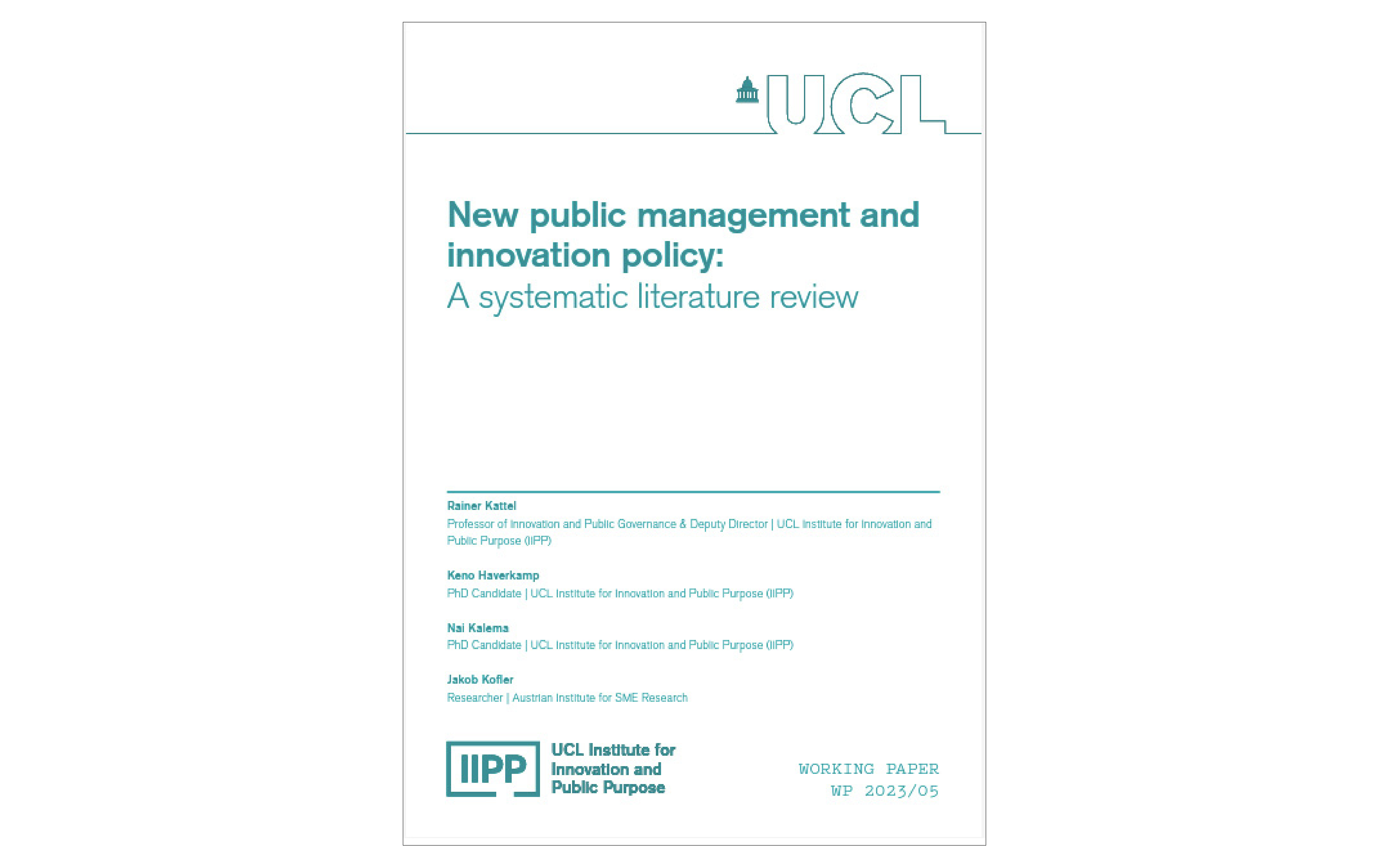New public management and innovation policy: A systematic literature review
Authored by Professor Rainer Kattel, Keno Haverkamp, Nai Kalema and Jakob Kofler

30 March 2023
UCL Institute for Innovation and Public Purpose (IIPP) Working Paper Series: IIPP WP 2023-05
Authors:
- Rainer Kattel | Professor of Innovation and Public Governance & Deputy Director | UCL Institute for Innovation and Public Purpose (IIPP)
- Keno Haverkamp | PhD Candidate | UCL Institute for Innovation and Public Purpose (IIPP)
- Nai Kalema | PhD Candidate | UCL Institute for Innovation and Public Purpose (IIPP)
- Jakob Kofler | Researcher | Austrian Institute for SEM Research
Reference:
Kattel, R., Haverkamp, K., Kalema, N. and Kofler, J. (2023). New public management and innovation policy: A systematic literature review. UCL Institute for Innovation and Public Purpose, Working Paper Series (IIPP WP 2023-05). Available at: https://www.ucl.ac.uk/bartlett/public-purpose/wp2023-05.
Abstract:
Innovation policy, as it is practiced today, and new public management (NPM) reforms both emerged in the 1980s. So far there is a limited number of studies focusing on the impact of NPM reforms on innovation policy. This paper offers the first systematic literature review on the topic. Based on more than a hundred sources, the article shows that in the literature there are distinct discussions of the impact of NPM on innovation as a research and development policy; and on innovation as a new way of working in the public sector. While the existing literature on NPM and innovation policy, such as it is, shows the mainly negative impact of NPM through the introduction of competitive practices, we demonstrate that the impact of NPM reforms is much more multilayered than previously assumed. NPM reforms, perhaps inadvertently, enabled the emergence of new and non-traditional actors in the innovation (policy) domain (such as innovation and digital agencies), and opened up discussions around collaboration and experimentation in the public sector innovation debates and practice. Thus, while the primary impact of NPM reforms on innovation (policy) in the public sector can be seen as negative; the secondary effect, through corrective reforms, can be seen as more positive.
 Close
Close

